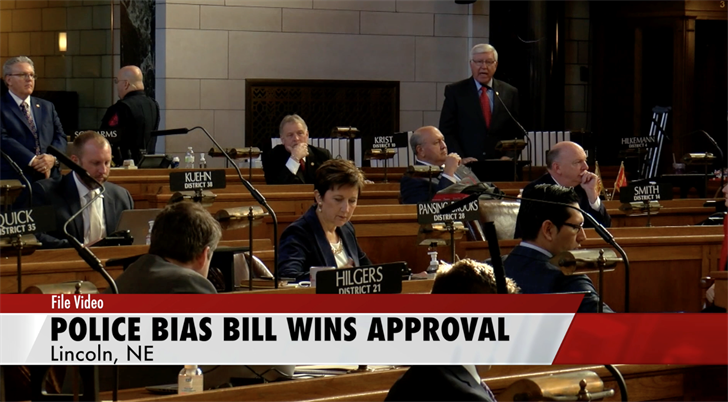LINCOLN, Neb. (AP) — Law enforcement officers would have to undergo anti-bias training under a bill that lawmakers advanced Wednesday and that could be the last major piece of legislation proposed by Nebraska’s longest-serving and best-known state senator.
Lawmakers gave the measure first-round approval on a 43-0 vote. It was introduced by Sen. Ernie Chambers, of Omaha, who designated it as his last official legislative priority bill in what could be his final year in office.
Chambers, 82, is the state’s longest-serving state lawmaker, having served a total of 46 years in Nebraska’s single-chamber Legislature. He was briefly ousted from office in 2009 due to term limits, but returned after the minimum four-year hiatus and won two more consecutive four-year terms. Term limits will remove him from office again in January for at least four years, and Chambers has declined to say whether he’ll run again.
The bill, which must still go through two more rounds of voting before it could go to the governor, would require two hours of anti-bias and implicit bias training as part of the continuing education requirements for local police officers and sheriff’s deputies. The Nebraska State Patrol would have to offer training as well to try to prevent racial profiling.
Chambers described the measure as a relatively small “peewee bill,” but said it could help prevent the deaths of unarmed black people.
“It will do some good,” said Chambers, who is black.
Sen. Patty Pansing Brooks, of Omaha, said the bill may seem small, but she argued that it isn’t a “peewee issue,” and she praised Chambers for his work in the Legislature.
Sen. Steve Lathrop, of Omaha, said it’s important because studies have shown that there is bias in law enforcement, even though it can be unconscious.
Chambers fought for years to abolish the death penalty and succeeded in 2015, but the law he sponsored was overturned by voters after a petition drive partially financed by Gov. Pete Ricketts and the governor’s conservative allies.
Under legislative rules, designating a bill as a priority increases the odds that lawmakers will debate and vote on it before the session ends, and proposals that don’t get chosen aren’t likely to pass. Each senator gets one priority bill per session.

















